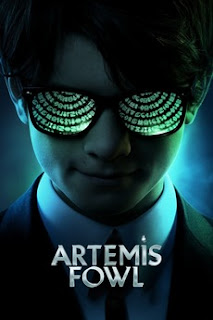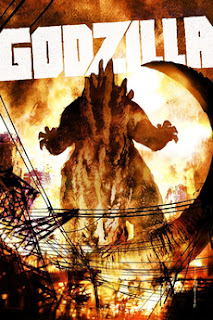Movie Review: The Prince of Egypt (1998)
The Prince of Egypt is an animated musical drama that comes from Dreamworks Animation. Starring Val Kilmer, Ralph Fiennes, Michelle Pfeiffer, Sandra Bullock, and Jeff Goldblum, the film adapts the book of Exodus following the story of Moses from his days as a prince of Egypt to the man who would ultimately lead his people of slavery.
Nostalgia can be a funny thing—that moment when you look back and reflect on what may have been simpler times. I'm sure they are many who remembered the past fondly because it seemed like everything it should be at the time. Of course, this can never last forever. Things change. People move on. And then you wonder why life can't be the same as it once was.
For Moses, however, the cracks in his simple life start emerging when the reality of who he is starts to sets in. A prince of a mighty empire came from the same lowly slaves he looks down upon. Surely it must be some sick joke, or has the inevitable finally arrived? And all he can do now is figure what how he can live with the truth of his life even when it's still supposed to be simple and happy.
My relationship with The Prince of Egypt can definitively be described as nostalgic for what may be peculiar reasons. Having been raised on Saturday morning cartoons and animated direct-to-DVD sequels (Yes, I was that type of kid), this film was one of the few that my younger self would consider serious for my age. Not because it's an overtly violent film with graphic imagery. No, it's much more impactful than that. The Prince of Egypt is about brotherhood, facing up to responsibility, and coming to terms with the harsh truth that maybe some things shouldn't change even if they make us comfortable.
What breaks my heart the most every time I look back on this film is that the relationship between Moses and his brother by bond Rameses is at its absolute highest. Sure, Moses may be too much of a goofball for his own good. It wouldn't hurt Rameses to learn that he shouldn't burden himself with his father's expectations as much as he thinks he should. But it's made very clear that these two would have always had each other's back when it counts. That no matter what happens, they could lean on each other's shoulders
So when Moses decides to leave Egypt (And thus Rameses) and comes back how many years later only to tell Rameses the only reason he's returned is to tell him that the slaves must be set free, any hope that things could be the way before are monstrously crushed. It's not the way they want things to be, but it's what must be done. Even when we know that Moses' cause is just, Rameses remains a sympathetic figure. He is not opposed to Moses out of malice. It's because he remains shackled by his father's expectations and the many fathers who came before him.
Part of what makes this conflict work is the performances of its all-star voice cast. Even if they're playing roles not as important as the two leads, the talents of Michelle Pfeiffer, Sandra Bullock, Jeff Goldblum, Danny Glover, Patrick Stewart, Helen Mirren do not go wasted and lend so much gravitas to the story. And while I don't find them to be the best comic relief out there, Steve Martin and Martin Short both do a decent job providing levity when appropriate. But it's the two-man duel of Val Kilmer and Ralph Finnes that makes the brotherly conflict in The Prince of Egypt so captivating. They have excellent chemistry and not only make their characters endearing but also genuinely tragic. Any scene that this two share on the screen is a highlight in the film. Especially once the dramatic thrust of the narrative starts to kick in.
In service to this profound narrative is the film's breathtaking visuals. Regarding the animation, there is so much in the way of character movement. There's this emphasis on capturing real human movement with these designs (Which range from the aggressive, more angular look of the Egyptians to the softer, natural look of the Hebrews) that does wonders into making the characters feel so alive. Even better, The Prince of Egypt wisely uses its terrific character acting for key moments in the film without relying on dialogue. When the drama ramps up, it takes only an expression on a character's face to understand everything they're feeling at that moment.
The film also blends its traditional animation with computer-generated imagery, and the result mostly holds up. In scenes such as the ten plagues of Egypt and the parting of the red sea, it looks fantastic. However, here or there, it does become a bit obvious when it's the latter, mainly with objects like a basket or early on in the film when Moses and Rameses go chariot-racing. It's a fun sequence with a lot of cool camerawork involved, but the CG does show its age ever so slightly. Thankfully it never becomes dated to the point of becoming a distraction, more or fewer thanks to its interaction with the film's 2D elements to make it feel tangible.
What hasn't aged at all is The Prince of Egypt's sense of scale. This feels like a huge movie focusing on the locales to make the people around them feel tiny in comparison. With an abundance of beautifully done wide shots, the film wisely uses this grand scope throughout the film that lends to the operatic feel of the narrative. I was also impressed with the artistic direction taken during certain scenes. For example, to illustrate Moses' internal conflict early on, the film has a dream sequence that recaps the introduction. What makes it interesting is that it's told using the art of the wall paintings in the temple instead of traditional animation. It was a very inspired choice that shows how chaotic mentally Moses feels without having to say anything.
I would be foolish not to talk about the musical components of The Prince of Egypt, but it is as good as one would hope. All of the songs are enjoyable in their own right, visually pleasing, and fit naturally within the narrative. The two highlights, in my opinion, is the opening piece Deliver Us and The Plagues, which kicks off the third act. The former provides a haunting introduction to the film. At the same time, The Plagues tragically displays the growing level of the divide between the two brothers and the chaos that seemingly could end up destroying Egypt itself. And as expected, Hans Zimmer's score is nothing short of brilliant. Soul-stirring and poignant, the film's soundtrack serves the ongoing drama.
In retrospect, it would be easy to say that I wish Dreamworks made more films in the vein of The Prince of Egypt. That's not to say the studio hasn't made great films ever since this one (Kung Fu Panda and How to Train Your Dragon to come to mind), but I'm not sure they have ever made a film as dramatic as this. But upon further thinking, maybe it's also is a blessing. Of course, a return to traditional animation would be nothing short of outstanding. Still, The Prince of Egypt is special because the studio took a shot to make a film as deeply moving and artistically rich as this. And maybe that can be good enough for me.
4.5/5




Comments
Post a Comment